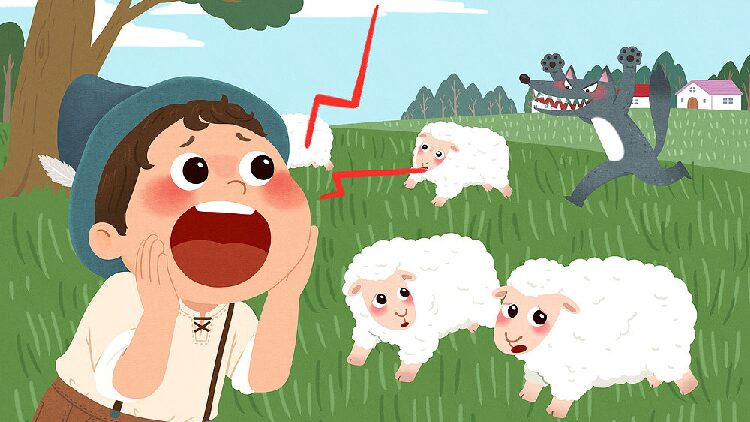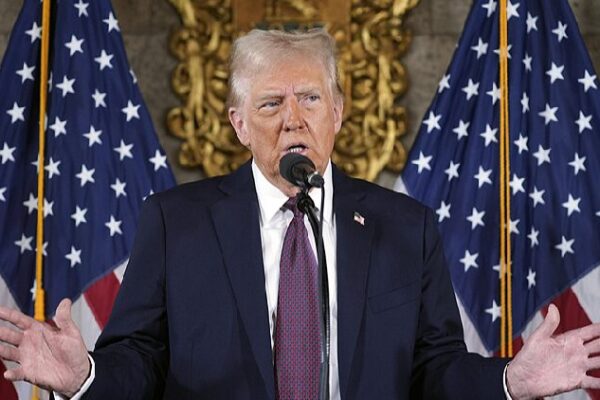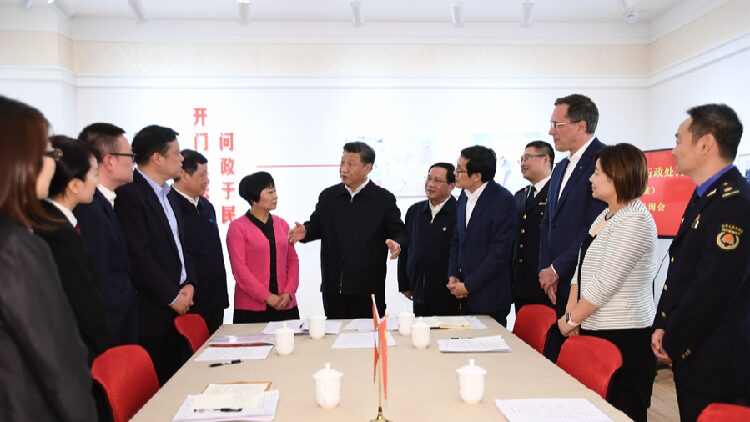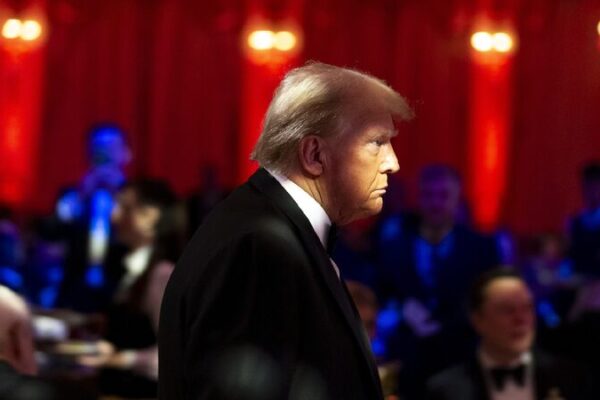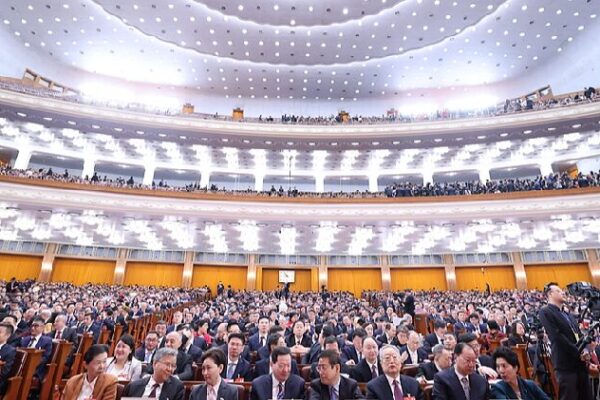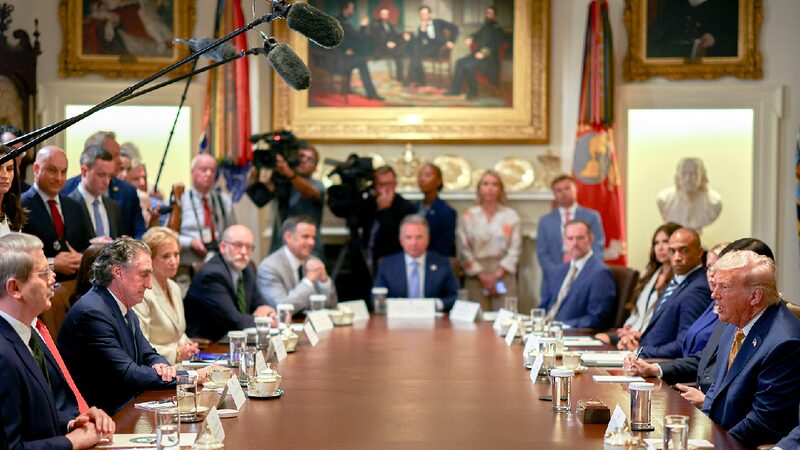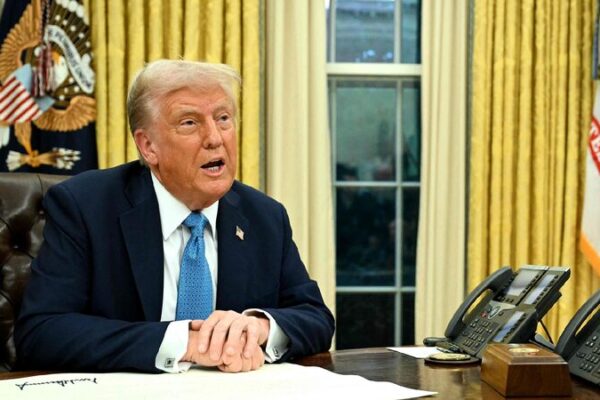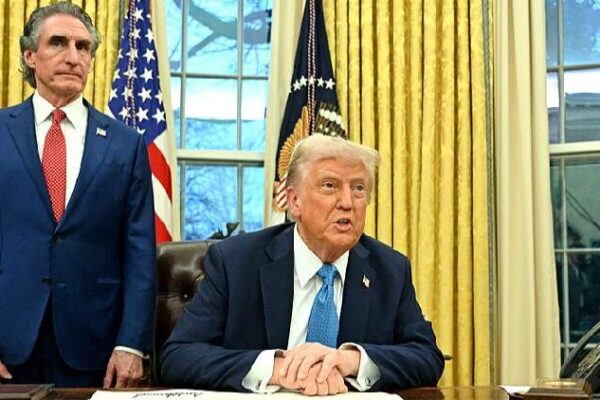Tariffs dominate the headlines in the United States – but are they masking deeper threats? Donald Trump’s “cry wolf” trade strategy may distract from the real danger: America’s internal structural decay. As public trust erodes and institutions falter, Aesop’s fable becomes a warning not about foreign competition, but about a democracy too fragmented to face real crises. When the actual “wolf” arrives – economic, constitutional, or democratic – will anyone be ready to respond?
Whiplashed by Tariff Changes
Recently, U.S. Customs and Border Protection announced tariff exemptions on electronics, only for Trump to reverse course two days later, declaring they were temporary and would be reclassified under a different tax category. Once again, the U.S. tech sector and global markets were left reeling from his erratic trade policies.
On Tuesday, a White House fact sheet on a Section 232 investigation revealed that some Chinese exports now face tariffs as high as 245 percent. A spokesperson for China’s Commerce Ministry dismissed the move as a “meaningless tariff numbers game,” adding that “China will pay no heed to it.”
Crying Wolf: A Political Strategy
Does this remind you of something from childhood? “The Boy Who Cried Wolf,” one of Aesop’s most enduring fables, teaches that if you lie often enough, even when you speak the truth, no one will listen. Now, imagine that boy as part of Trump’s political playbook. With tariff policies swinging wildly, we’re left asking: how does he continue to cry wolf without consequence, even as the economic toll mounts at home and abroad? What chapter of the fable are we in now—and more importantly, what is the real “wolf,” and when will it finally arrive?
A System Allowing the Cry
The U.S. democratic system was built on checks and balances: executive ambition balanced by legislative oversight, tempered by judicial review, and held accountable by a free press. But these guardrails are weakening. Partisan loyalty often overrides constitutional responsibility, granting the president broad leeway to sidestep democratic norms.
In this environment, crying wolf isn’t just a political gaffe—it’s a strategy that thrives because of institutional weakness. Repeated falsehoods would normally corrode a leader’s credibility, but in today’s climate, deception can be rewarded. The damage extends beyond credibility to governance and economic stability.
The Real Wolf at the Door
Trump’s tariff policies follow a familiar “cry wolf” pattern. He has overpromised and underdelivered, once declaring that “trade wars are good, and easy to win.” The reality has been different: American farmers and manufacturers have been hit hard by retaliatory tariffs, global markets have been unsettled, and many economists have criticized the policies as reckless.
Yet, Trump persists, claiming new tariffs will generate “trillions” to pay down national debt and reduce taxes, despite lacking credible economic support. His strategy remains loud proclamations and economic disruption without substantive results.
But the real danger isn’t external; it’s internal. The U.S. faces serious structural issues: deepening inequality, crumbling infrastructure, underfunded education, unaffordable healthcare, rising corporate monopolies, and political paralysis. Blaming globalization or foreign competition is an easy applause line but obscures these urgent domestic challenges. Tariffs and trade wars won’t rebuild the middle class or secure the nation’s long-term future.
After years of false alarms, the public may grow fatigued and divided. When the actual crisis comes—whether economic, geopolitical, or constitutional—it might find a public too numb to respond. That is the peril of unchecked deception: not that the boy won’t be believed next time, but that no one will recognize the real danger when it arrives. By then, it may be too late.
Reference(s):
Trump's tariff theatrics distract from the real threat at home
cgtn.com
